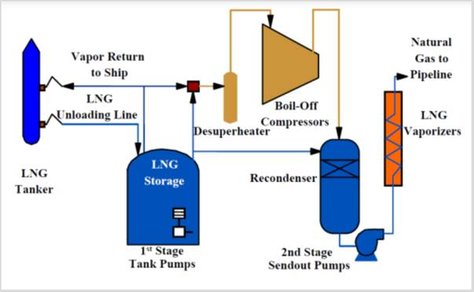Hemla’s belief is that the power demand in West Africa will be delivered via a combination of gas-fired power plants, wind and solar power going forward.
Hemla has executed feasibility studies evaluating the opportunity to establish a Gas - LNG Value Chain from gas assets in West Africa for LNG supply to neighboring countries. Hemla has studied the conversion of old LNG tankers to re-gas vessels (FSRU), as well as evaluated the potential for application of new-built FSRUs.
The selection of an appropriate old LNC carrier to be acquired for conversion is based on the balance between the vessels price and age. Thus the remaining life-time of the vessel may be sufficient if the vessel maintenance has been up to standards.
A complexity with respect to the size of the LNG storage for any FSRU solution may add additional cost to the applicable day-rate. However, such cost is subject to the market in West Africa. Hemla is expecting the application of LNG in West Africa to increase over the coming few years and that a secondary small scale LNG market will be established.
A LNG import terminal, e.g. a FSRU, is the final link in the LNG chain and the point of connection to the consumers. LNG import terminals take the LNG in its liquid form, store it, then warm it up and send it through the pipeline system.
Typical LNG terminal schematic. Source: CB&I
All LNG import terminals, whether onshore or offshore, essentially work in the same way and feature common systems, as follows:
- Tanker berthing and unloading facilities;
- Storage tanks;
- Regasification system;
- Facilities to handle vapor and boil-off gas;
- High-pressure LNG pumps;
- Metering and pressure regulation station;
- Gas delivery infrastructure;
- Gas odorization and calorific value control.
Hemla is capable to execute the Project Management for a complete re-gasification project for any location in West Africa, all the way from conversion of a LNG carrier, a new-built, as well as the mooring facilities and port facilities.
Hemla can also assist in financing the re-gas facility or arrange and manage a tender process for a lease arrangement to the existing international players within the FSRU market on behalf of the domestic owner.
HEMLA
Frøyas gate 13, 0273 Oslo
Norway
Mail: info @ hemla.no

